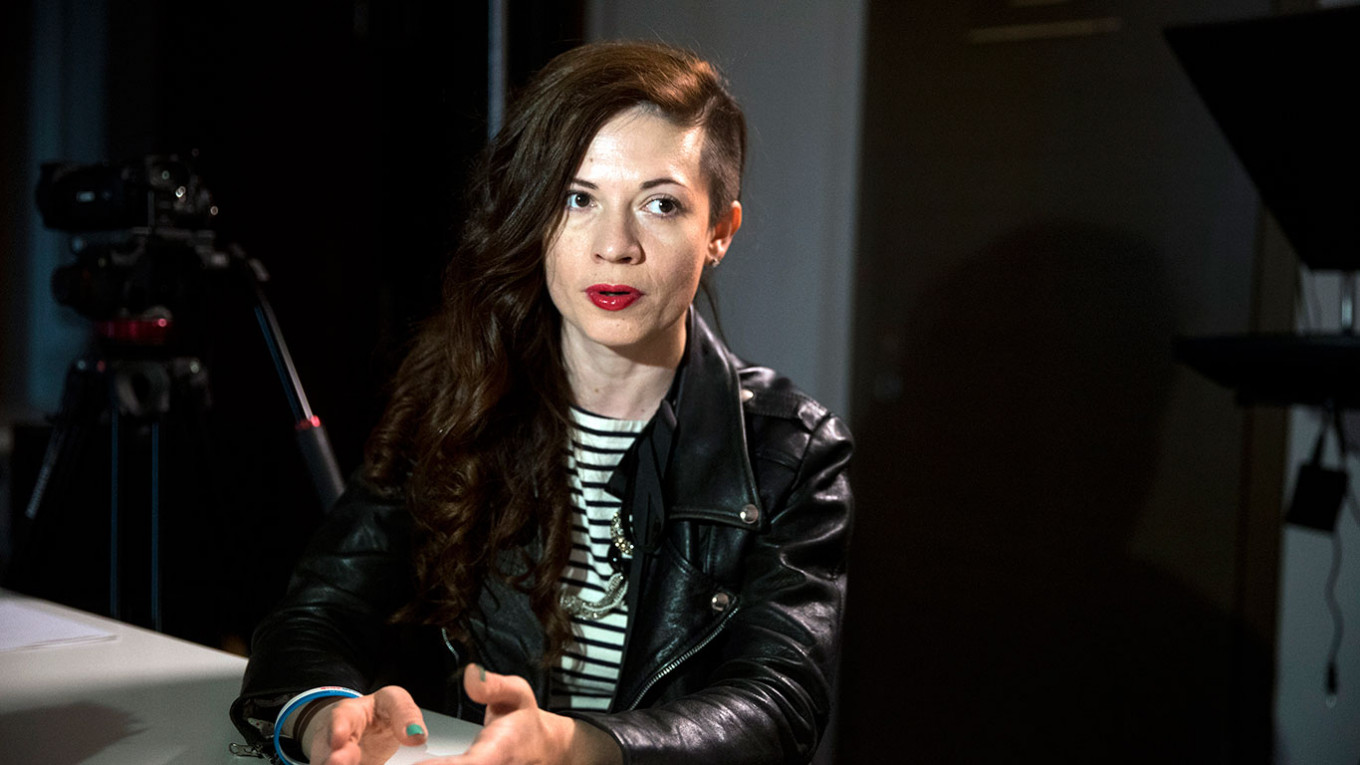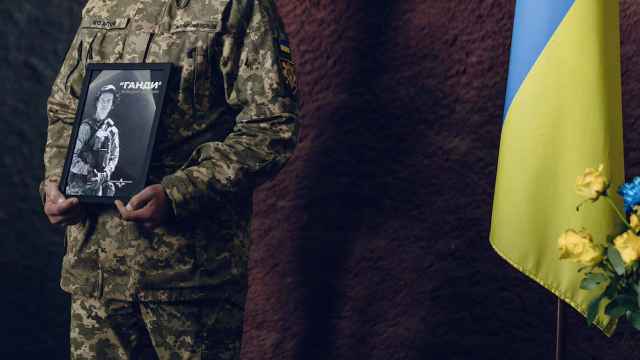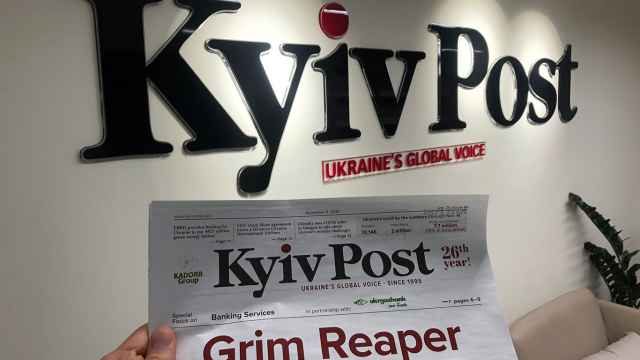Russian journalist Oksana Baulina, who was killed while reporting on Moscow’s invasion of Ukraine, was a “strong” and “courageous” individual who possessed “a phenomenal sense of moral clarity,” her friends and colleagues said.
Baulina, 42, was "filming the destruction" caused by Russian shelling in Kyiv’s Podil district for The Insider on Wednesday when she was killed by a second Russian strike, the outlet said. One civilian also died in the shelling and two others were wounded, the independent investigative outlet reported.
Meduza investigative editor Alexey Kovalyov, who said he knew Baulina for 16 years and had worked with her at various independent outlets, described her as “a journalist with a phenomenal sense of moral clarity.”
“That's how I'll remember Oksana. Always at the front of any picket line, immensely resourceful, incredibly brave but never reckless or irresponsible, always directing her superhuman energy to the most righteous causes. And a life she gave up for this without a second thought,” Kovalyov continued.
Amnesty International researcher Oleg Kozlovsky, who had known Baulina for eight years, remembers her as “talented, strong, courageous.”
Baulina started her career in lifestyle media but later switched to political journalism and opposition activism. In 2014, Baulina became the editor of Conde Nast Traveler but quit after she was forced to run an article on holidays in annexed Crimea, her friend Olga Shakina of the Department One human rights group told Perviy Otdel.
“I have no idea how Oksana, a person who was absolutely free of cynicism, survived in 2000s and 2010s Moscow. If cynicism is a form of self-defense, then Oksana was absolutely defenseless. When she talked about something she believed in, and the person she was speaking with thought it was too intense, too much, her voice started to falter. Any injustice surprised her,” film critic Maria Kuvshinova wrote.
After leaving the glossy lifestyle publications behind, Baulina worked with Alexei Navalny’s Anti-Corruption Foundation (FBK) as a producer for Navalny’s YouTube channel until FBK was banned as an “extremist” organization in 2021.
She also reported for independent news outlets such as Mediazona and The Insider, both of which are labeled “foreign agents” within Russia and were recently blocked by authorities over their war coverage.
As Russia's pressure on independent media and opposition activists intensified, Baulina left the country for Poland.
“She was forced out of Russia,” Baulina’s friend, Tatiana Usmanova, told the independent Russian magazine Holod. “She had to leave the country in the summer of 2020, amid the pandemic. There was a high chance an extremism case could be opened against her. The border was almost completely closed at the time, so she had to cross it by foot, dragging her suitcases along.”
Baulina went to Ukraine on assignment for The Insider in March and filed several stories from Kyiv and Lviv before she was killed.
She is at least the fifth journalist to have been killed while covering Russia’s month-long “special military operation” in Ukraine. The Prosecutor General’s Office of Ukraine has launched an investigation into Baulina’s death.
Mediazona publisher Pyotr Verzilov posted a voice message that Baulina had sent him several hours before her death. In the voice message, Baulina can be heard telling him about the missile strikes she saw in Kyiv and sent pictures of the city.
“I saw Oksana five days ago, in Lviv,” Verzilov wrote on Twitter. “We talked about her Kyiv plans and ate cheesecake. We had been texting each other every day.”
Verzilov said he remembers Oksana as a “great person and a wonderful colleague, passionate about all of her projects.”
The Pussy Riot activist group which founded Mediazona tweeted that Baulina, who “came to Kyiv to tell the world about the victims of the war,” had “died heroically.”
“We will remember you forever. We will not forgive [this] to Putin," the group wrote.
A Message from The Moscow Times:
Dear readers,
We are facing unprecedented challenges. Russia's Prosecutor General's Office has designated The Moscow Times as an "undesirable" organization, criminalizing our work and putting our staff at risk of prosecution. This follows our earlier unjust labeling as a "foreign agent."
These actions are direct attempts to silence independent journalism in Russia. The authorities claim our work "discredits the decisions of the Russian leadership." We see things differently: we strive to provide accurate, unbiased reporting on Russia.
We, the journalists of The Moscow Times, refuse to be silenced. But to continue our work, we need your help.
Your support, no matter how small, makes a world of difference. If you can, please support us monthly starting from just $2. It's quick to set up, and every contribution makes a significant impact.
By supporting The Moscow Times, you're defending open, independent journalism in the face of repression. Thank you for standing with us.
Remind me later.







